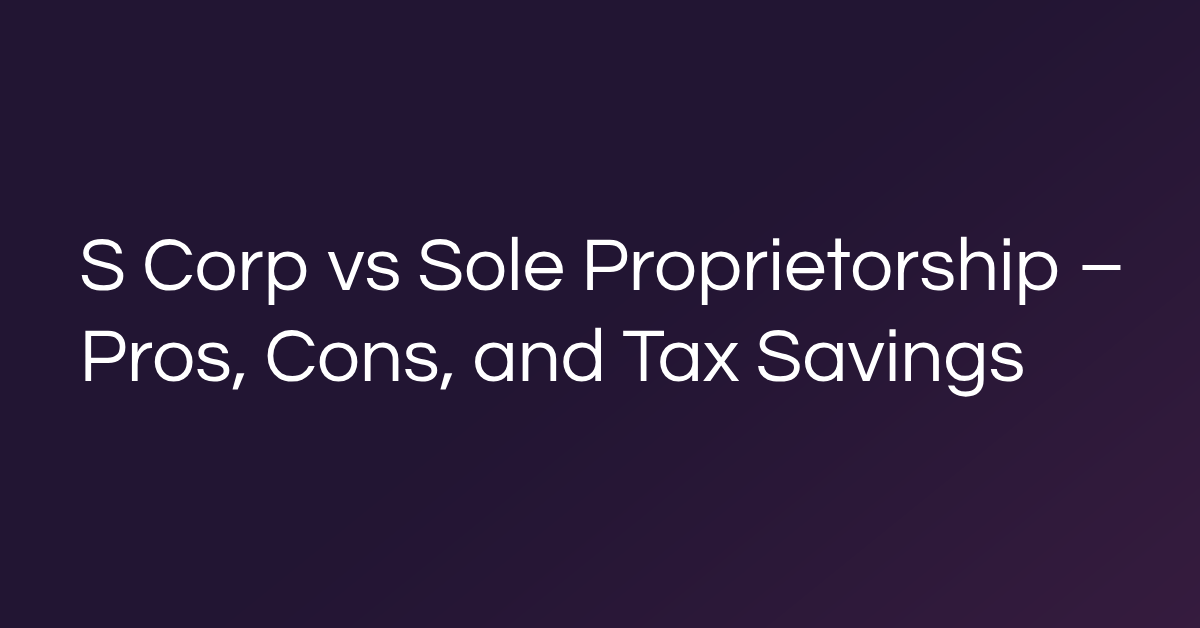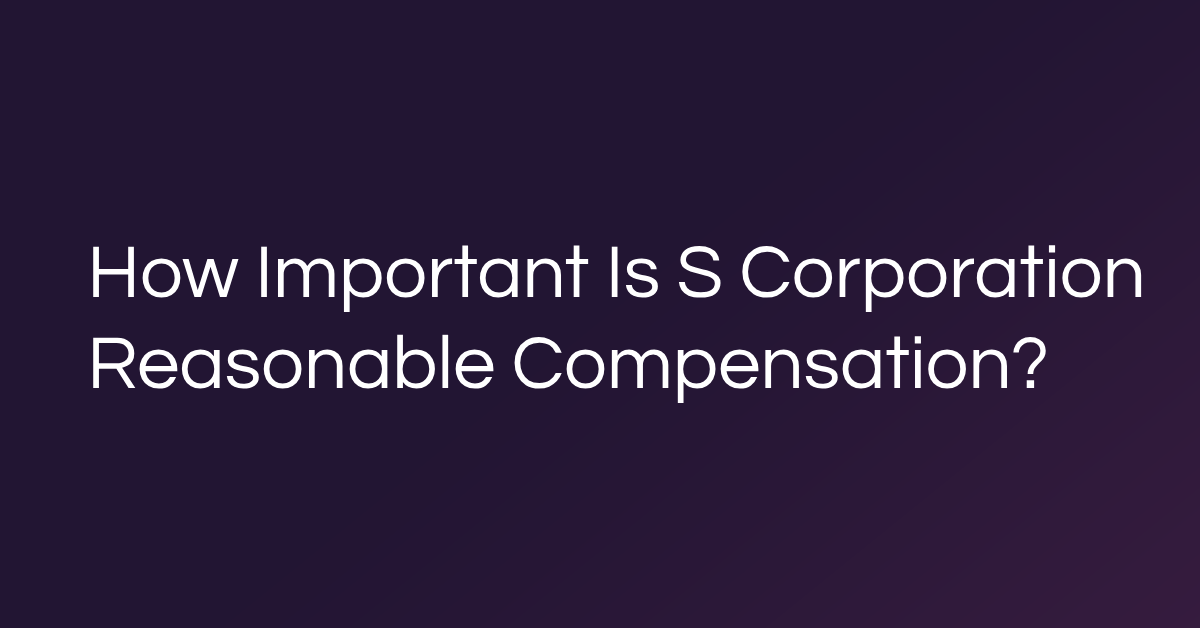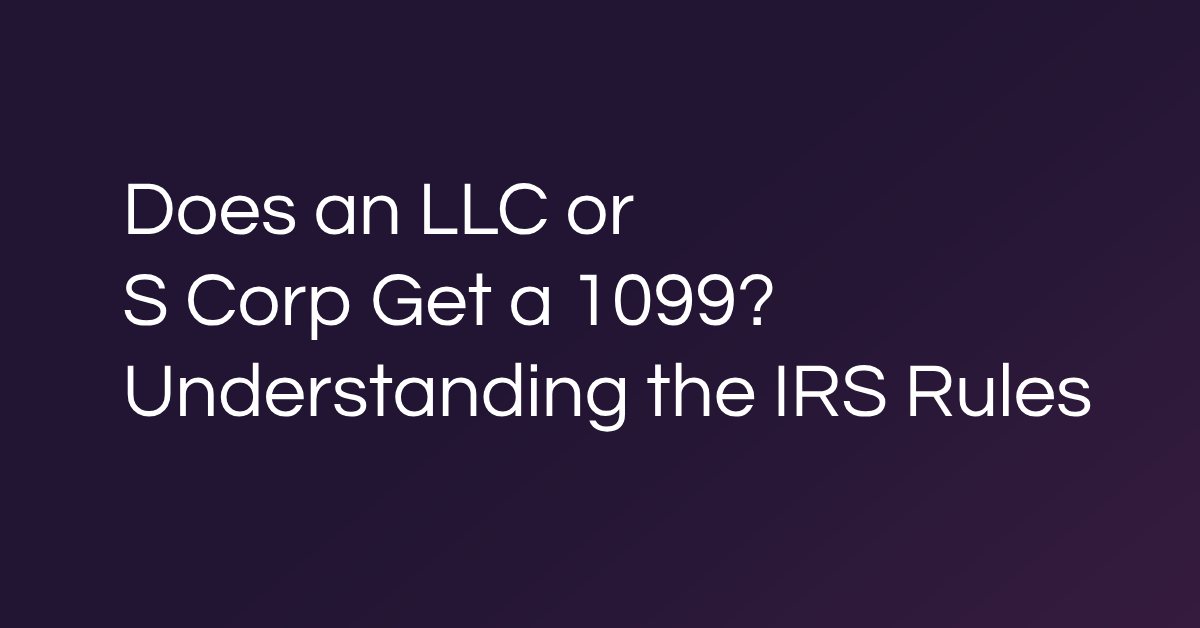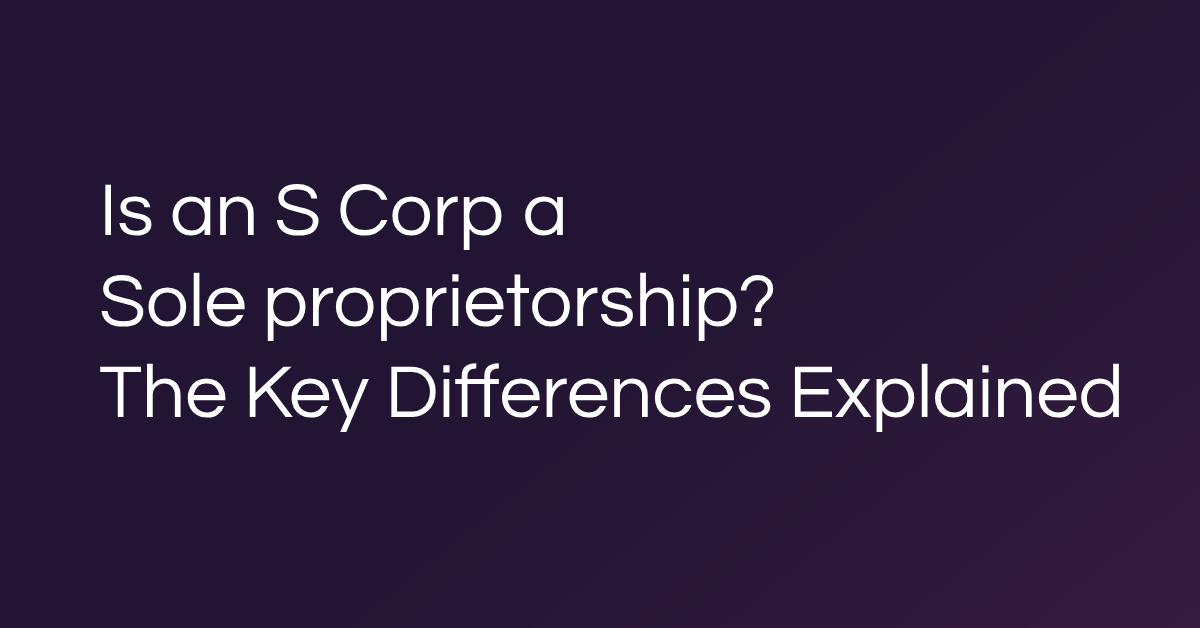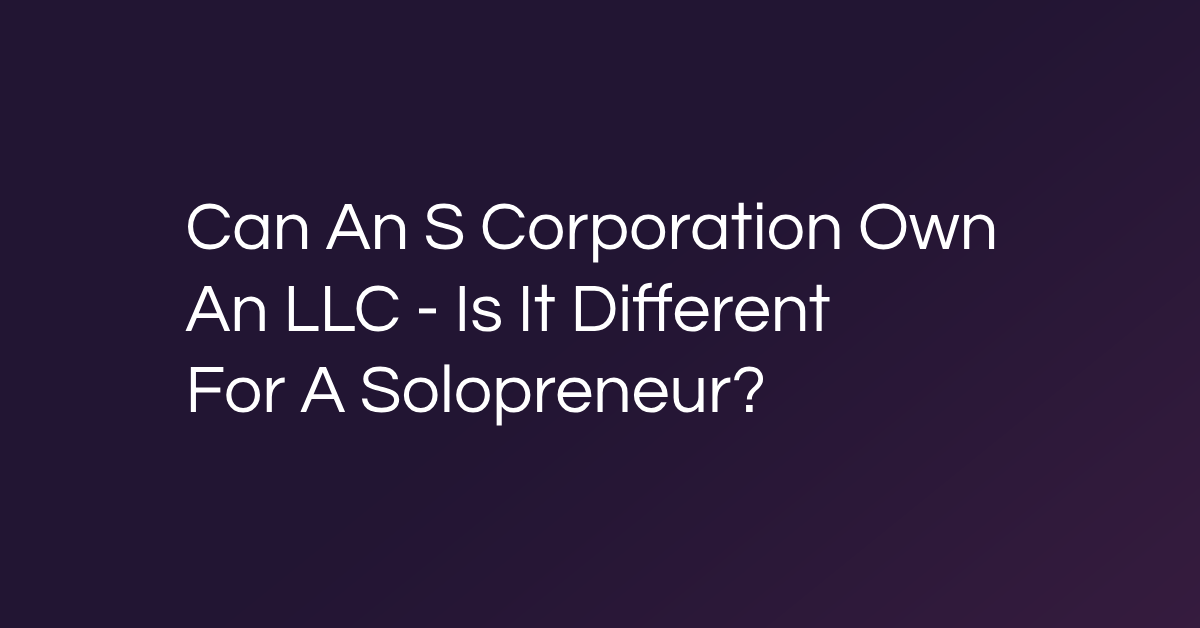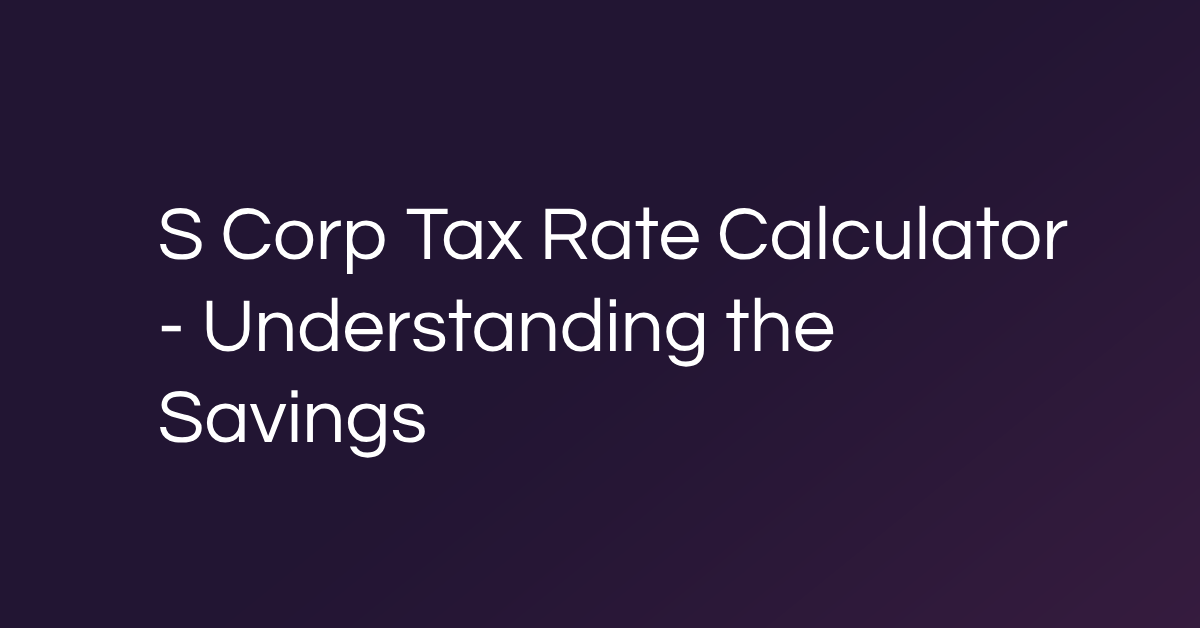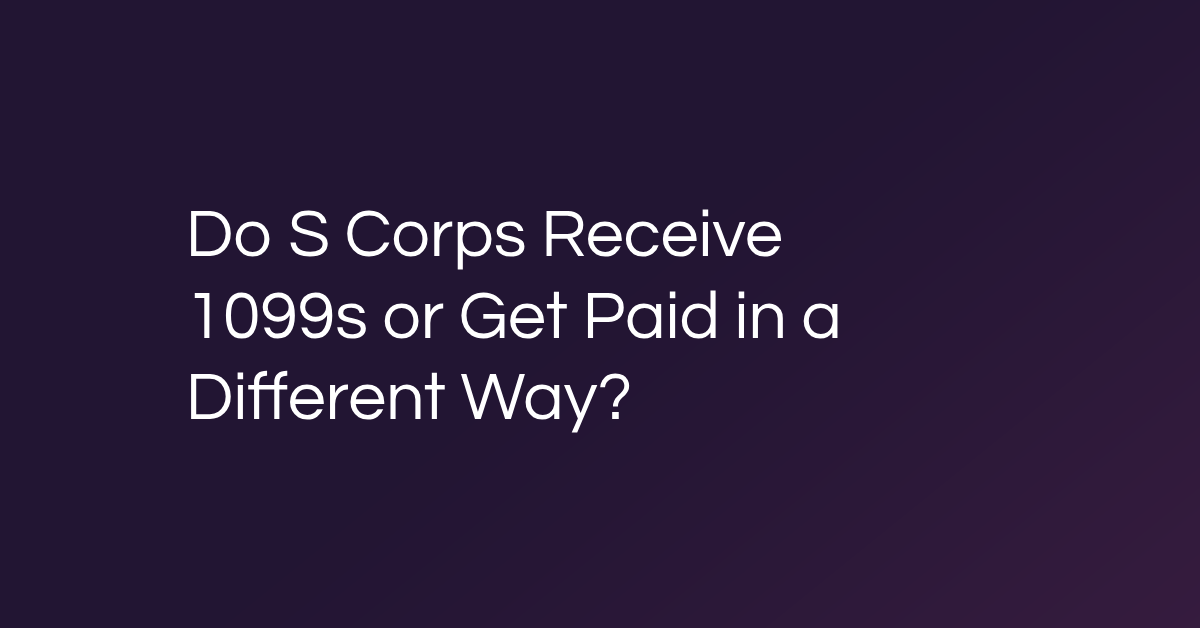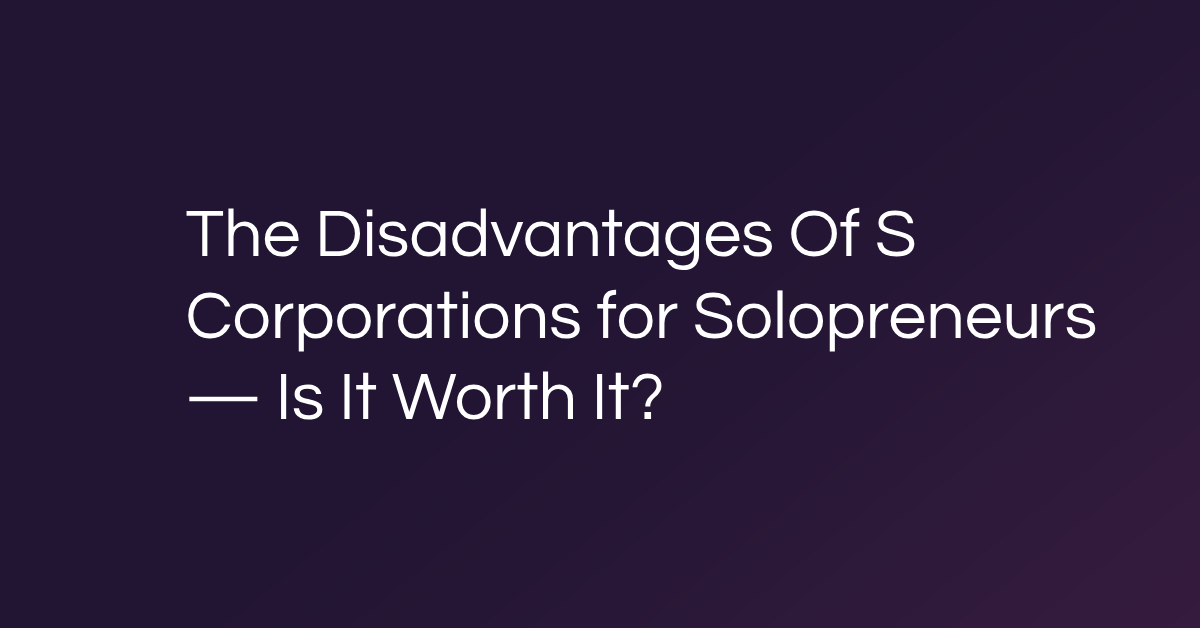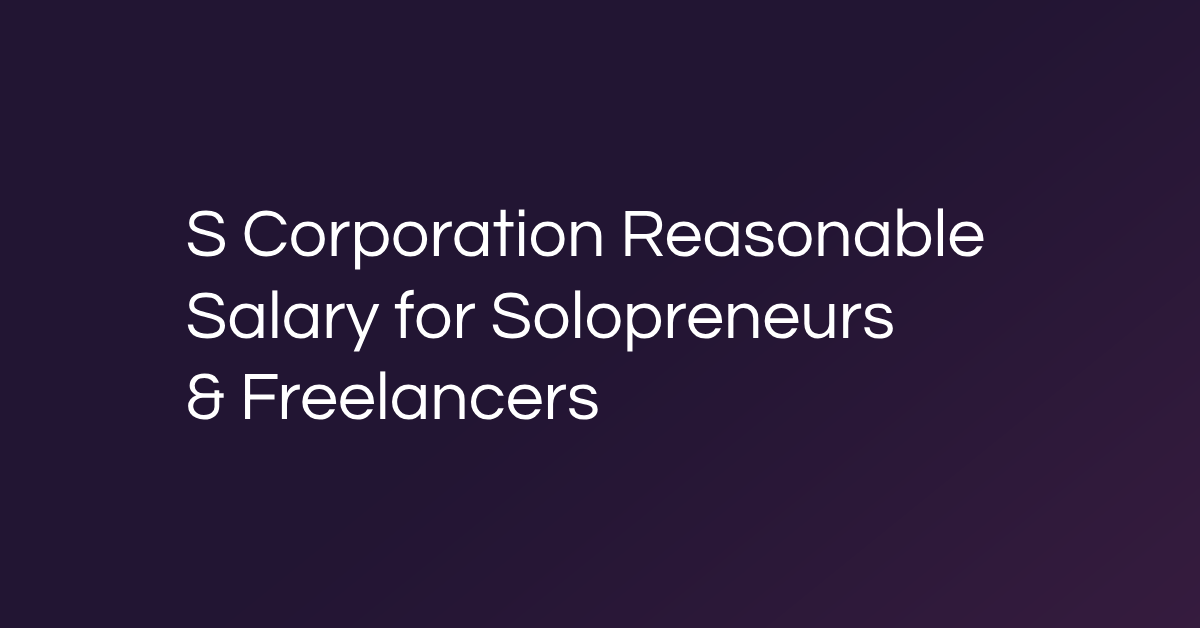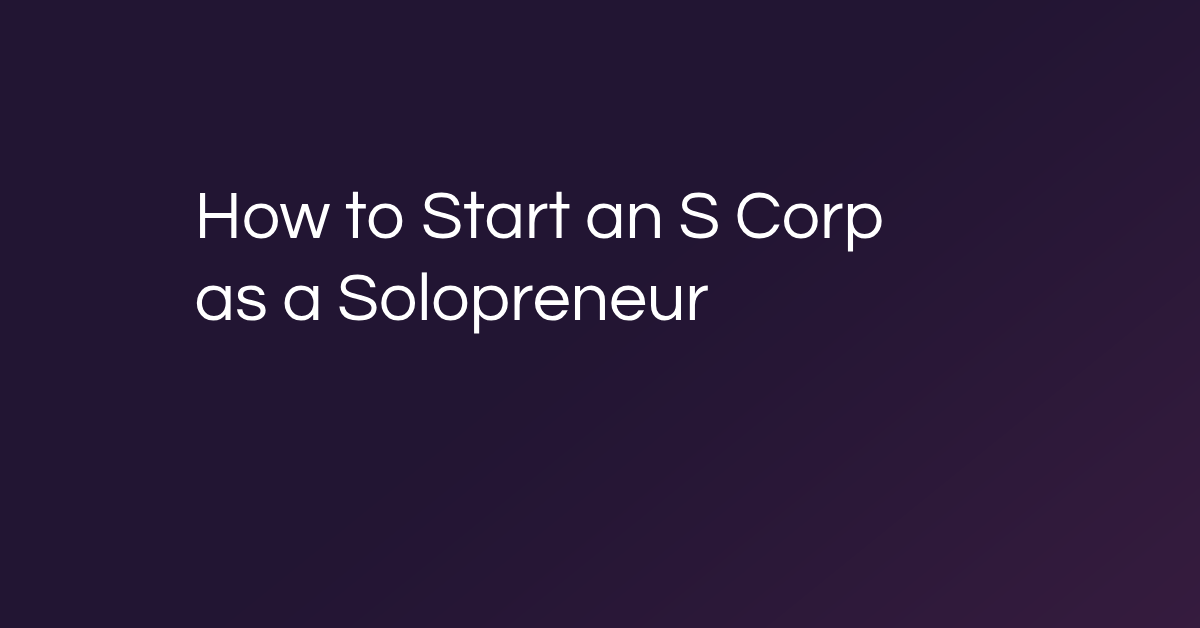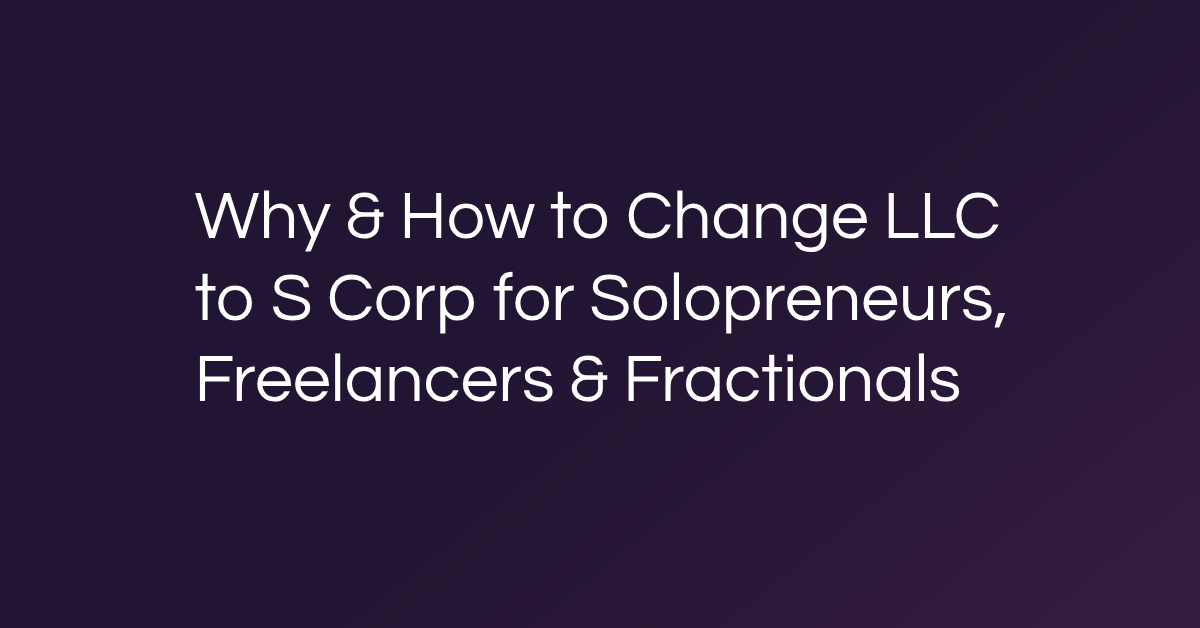Choosing the right business structure shapes your taxes, liability, and long-term growth. For small business owners operating as a single-member LLC or S corp, comparing a sole proprietorship versus an S corp helps unlock smarter tax strategies and greater financial flexibility. Each business structure works differently and that’s where the tax advantages lie. In the end, many solopreneurs switch to an S corp as a better long-term option for their business once they reach a stable place with their revenue/customer sourcing.
What is a sole proprietorship?
A sole proprietorship is the most basic way to operate a business. It doesn’t create a separate legal entity, which means there’s no distinction between the company and the individual running it. You control operations directly, keep all profits, and report income on your tax return.
This structure appeals to many first-time entrepreneurs because it’s easy to set up and doesn’t require formal incorporation. You may need to register a business name or obtain local licenses, but you won’t file formation documents with the state.
While the simplicity is attractive, it comes with significant drawbacks. Sole proprietors assume full personal liability for business debts, lawsuits, and obligations. There are also fewer tax planning options, so many business owners explore more flexible structures like S corps or LLCs.
What is an S corp?
An S corporation (S corp) is a tax election available to qualifying corporations and LLCs that allows income, losses, deductions, and credits to pass through to shareholders without being taxed at the corporate level. It maintains a corporation’s legal protections while offering a pass-through entity’s tax flexibility.
S corps are particularly appealing to small business owners because they help reduce self-employment taxes. S corp owners only pay taxes on their reasonable salary, not the full income of the business.
There are some downsides. S corps must meet specific IRS requirements and follow stricter compliance rules. But for business owners ready to optimize their tax strategy while maintaining liability protection, an S corp can be a powerful tool. You can streamline the setup with Besolo’s Solo S Corp platform.
Key differences between an S corp and a sole proprietorship
A sole proprietorship is not a separate legal entity. The business and the owner are legally the same, meaning all profits, liabilities, and obligations fall directly on the individual.
In contrast, an S corp is a tax election made by a corporation or LLC that meets certain requirements. It provides limited liability protection and allows income to pass through to the owner without being subject to corporate income tax.
Another key distinction is how each entity manages profits and compliance. Sole proprietors report income and expenses on their personal tax returns and have fewer formal requirements. S corps must follow more structured rules, including filing separate business tax returns and maintaining corporate records.
These operational differences can affect solo entrepreneurs’ retirement planning, tax reporting, and long-term scalability. Entity type plays a central role in shaping available benefits and investment strategy.
S corp vs. sole proprietorship taxes
One of the most important differences between an S corp and a sole proprietorship comes down to how each is taxed.
Both structures use pass-through taxation, meaning business income is reported on the owner’s personal tax return rather than being taxed at the corporate level. However, how income is treated — and taxed — can vary significantly.
Sole proprietors pay self-employment tax (Social Security and Medicare) on all net profits from the business. This can add up quickly and reduce overall take-home income. An S corp allows business owners to pay themselves a “reasonable salary,” which is subject to payroll taxes, while distributing remaining profits as dividends, which are not subject to self-employment tax.
This distinction gives S corp owners more flexibility in paying themselves and managing their tax burden. It’s a strategy that helps many small business owners legally lower their tax liability and optimize how income flows through a pass-through entity.
Eligibility for ownership
The path to ownership differs significantly between an S corp and a sole proprietorship. A sole proprietorship is open to anyone who wants to operate a business under their name or a registered DBA. There are no formal restrictions, which is part of what makes it an appealing choice for freelancers and first-time business owners.
An S corp comes with more defined rules. Shareholders must be U.S. citizens or resident aliens, and the entity is limited to 100 shareholders. S corps are also restricted to issuing one class of stock and must file the proper election paperwork after forming a corporation or LLC.
Is a sole proprietorship or an S corp best for you?
The best structure depends on your goals and where you are in your business journey. If you’re just starting out, testing an idea, or working part-time as a freelancer, a sole proprietorship offers simplicity with minimal setup. But as your income grows — or you start treating your business like a business — a sole proprietorship may hold you back.
An S corp can reduce your self-employment tax burden, add legitimacy to your brand, and create opportunities to reinvest or grow. This structure often provides a stronger financial foundation for business owners ready to scale with fewer long-term risks.
Besolo’s S corp setup process makes the transition seamless, offering expert-backed support tailored for single-member LLCs.
How to form an S corp
Setting up an S corp is straightforward.
- Form a legal business entity: Register an LLC or corporation with your state.
- Apply for an EIN: Get an Employer Identification Number to open a business bank account and file taxes.
- File IRS Form 2553: This must be filed within 75 days of forming or starting the tax year.
- Stay compliant: Track income and expenses, pay yourself a reasonable salary, and file your annual tax returns on time.
If you’d rather make your S Corp life 20X simpler, Besolo’s Solo S Corp package handles all the details — registration, compliance, and support — so you can focus on growing your business.
Set your business up to grow
Choosing between a sole proprietorship and an S corp isn’t just about paperwork — it’s about building a structure that supports your goals.
Besolo’s self-employment platform makes it easy to move forward with confidence. When you’re ready to turn your side hustle into a scalable business, start with a structure built to last.

